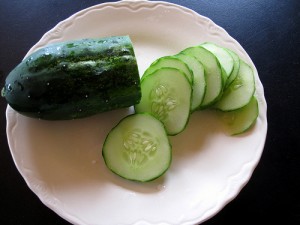 The bacterial outbreak, which killed at least 17 people and sickened thousands more, has sparked a diplomatic argument between two European countries.
The bacterial outbreak, which killed at least 17 people and sickened thousands more, has sparked a diplomatic argument between two European countries.
Germany struggled on Wednesday to identify the real source of a lethal foodborne infection, which has been attributed to a rare strain of E. coli. The outbreak is yet the worst that Germany had experienced in history.
Since May, over 1,000 residents have gotten sick from food poisoning. Aside from that, 470 people suffered from a dangerous reaction to the infection called haemolytic uremic syndrome. This causes kidney failures, seizures and strokes.
German officials have found out that the people were most likely infected after eating raw vegetables such as cucumbers, lettuce and tomatoes. They initially considered Spanish cucumbers as the culprit. Tests ran on the vegetables revealed that some were, indeed, contaminated with the bacteria.
However, they found out that a different E. coli strain from the one identified is responsible for the disease. Germany admitted that contaminated cucumbers shipped from Spain are not to be blamed for the mass outbreak.
E. coli is a typical bacterium found mainly in the human digestive system. Most forms are fairly harmless. However, EHEC or Enterohaemorrhagic E. coli causes more severe manifestations of the illness. This ranges from bloody diarrhea to life-threatening haemolytic uremic syndrome.
Spain threatened to sue Germany after it has mistakenly identified Spanish produce as the source of the outbreak. It says Spanish exporters of fruits and vegetables have lost over 200 million euros or $290 million after the import ban. Other countries have also blocked Spanish produce after the misleading announcement made by Germany.

